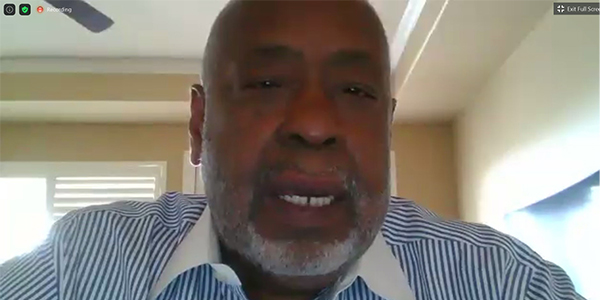Industry experts last week discussed the energy industry’s racial gaps and how to design more equitable energy policies that address the higher bills and bad air quality often faced by the poor.
Diana Hernandez, Columbia University assistant professor of Sociomedical Sciences at the Mailman School of Public Health, said one out of three U.S. households are “energy insecure” — paying a high proportion of their earnings on utility bills, facing disconnection notices or forced to keep their homes at unhealthy temperatures to cut costs.
African Americans and Latinos are most likely to face energy insecurity and often pay more for energy bills, Hernandez said during the June 30 panel discussion, held via Zoom and sponsored by Pecan Street, an Austin, Texas-based electricity data research organization.
Hernandez said “the legacy of segregation” means that marginalized populations live in older, less energy-efficient households and are generally not able to afford new efficient appliances, better insulation or new windows.
The University of California Berkeley’s Energy Institute at Haas in June found that Black households have higher residential energy expenditures than white households across the nation. Researchers said Black renters pay on average $273 more per year than their white counterparts, while Black homeowners pay about $408 more per year than white homeowners.
“They’re paying more, and they’re benefiting less from new energy technologies,” Hernandez said.
“People end up making trade-offs in quality of life for high-energy burdens,” said Dana Harmon, executive director of the Texas Energy Poverty Research Institute. She said that food and clothing are the most common concessions before covering high energy bills.
Hernandez used as an example Lisa Daniels, a 68-year-old Newark, N.J., resident who died in 2018 after Public Service Electric and Gas disconnected her power, leaving her without access to her oxygen mask. Her death prompted New Jersey Gov. Phil Murphy last year to sign a law that bars utilities from shutting off power for 90 days after nonpayment by customers who rely on electric medical devices to survive.
Pecan Street General Counsel and CFO Fisayo Fadelu said disadvantages for communities of color are evident in cities’ infrastructure investments.
“We need to acknowledge that the playing field is not even. Equal investment will not work,” she said.
Fadelu said that while communities of color might not recognize energy justice as a priority, energy efficiency lowers housing costs. The clean energy sector can provide much-needed well-paying jobs, she said, but cities must be willing to invest in those communities to correct racial burdens, she said.
“Race has been and is the most dominant issue in American politics,” said John Hall, director of regulatory and legislative affairs for the Environmental Defense Fund. “Because racism is such a dominant force in our society, that gives rise to systemic racism. And systemic racism is in every sector and industry.”
Hall said the first step organizations usually take is enacting diversity equity and inclusion plans pertaining to hiring practices, then extending those principles to their contractors.
“Overall, the energy sector, as well as the fossil fuel industry and clean energy sector, have not enacted diversity, equity and inclusion plans,” Hall said. “And as a consequence, they have not afforded communities of color the opportunity to participate.”
Minority communities are more likely to be located near fossil fuel plants and bear the brunt of harmful emissions, Hall said. Employees of color are often barred from blue-collar jobs in energy production, he said, expressing concern the same trend is developing in the clean-energy sector.
“We need all Americans — not most — to make being anti-racist their business,” Hall said.
MISO is one organization that recently recommitted to diverse hiring practices during its June Board of Directors meeting. (See MISO Board Addresses Racism, Social Unrest.) A recent follow-up letter from Board Chair Phyllis Currie and MISO CEO John Bear acknowledged “recent events of horrific mistreatment of the African American community.”
“We view these events as indicative of even broader concerns over systemic racism that unfairly discriminates against human beings throughout this community and many other diverse communities,” Currie and Bear wrote.
“We stand with the African American community,” the letter continued. “It is a community in pain, and we know that to have real empathy, we must do more to listen and learn from their perspectives on systemic racism and long-term disparate treatment.”
Currie and Bear vowed MISO will recruit interns from historically Black and Hispanic colleges and universities.
Pecan Street said it plans to hold additional virtual panel discussions on the energy industry’s racial disparities.





